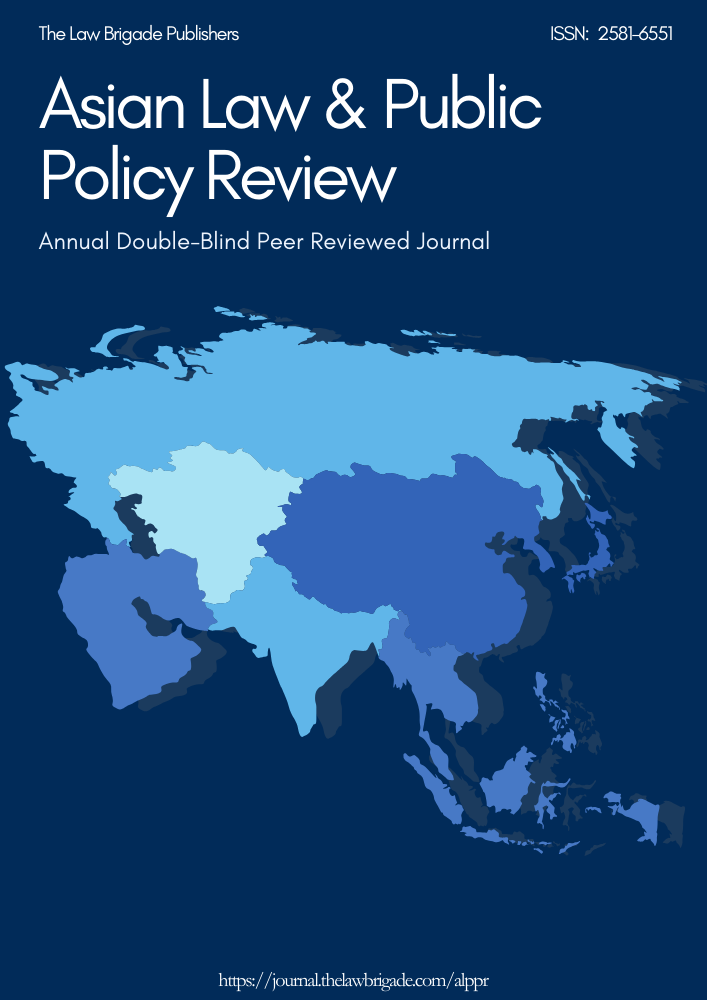Customary Law-Formal Law Interface: Impact On Tribal Culture
Downloads
DOI:
https://doi.org/10.55662/ALPPR.2019.424Keywords:
tribes, Tribal Culture, Northeast, Formal Law InterfaceAbstract
Most tribes of the Northeast combine allegiance to the formal legal system of the Indian Constitution with adherence to their tradition or customary law in their civil, social and cultural life. It is true of tribes all over India but is so particularly in the Northeast. The customary law is among the most distinctive features of the tribes of this region. They have been subjected to economic, social, political and religious pressures but less than in Middle India. Such pressures have eroded many of their systems but most continue to retain their customary law to which the State has accorded constitutional recognition in Nagaland and Mizoram. Others live according to it without formal recognition but want the State to grant them constitutional recognition.
External References to this Article
Loading reference data...
License Terms
Ownership and Licensing:
Authors of research papers submitted to any journal published by The Law Brigade Publishers retain the copyright of their work while granting the journal specific rights. Authors maintain ownership of the copyright and grant the journal the right of first publication. Simultaneously, authors agree to license their research papers under the Creative Commons Attribution-ShareAlike 4.0 International (CC BY-SA 4.0) License.
License Permissions:
Under the CC BY-SA 4.0 License, others are permitted to share and adapt the work, even for commercial purposes, provided that appropriate attribution is given to the authors, and acknowledgment is made of the initial publication by The Law Brigade Publishers. This license encourages the broad dissemination and reuse of research papers while ensuring that the original work is properly credited.
Additional Distribution Arrangements:
Authors are free to enter into separate, non-exclusive contractual arrangements for distributing the published version of the work (e.g., posting it to institutional repositories or publishing it in books), provided that the original publication by The Law Brigade Publishers is acknowledged.
Online Posting:
Authors are encouraged to share their work online (e.g., in institutional repositories or on personal websites) both prior to submission and after publication. This practice can facilitate productive exchanges and increase the visibility and citation of the work.
Responsibility and Liability:
Authors are responsible for ensuring that their submitted research papers do not infringe on the copyright, privacy, or other rights of third parties. The Law Brigade Publishers disclaims any liability for any copyright infringement or violation of third-party rights within the submitted research papers.
Citation Metrics
Published
Issue
Section
License

This work is licensed under a Creative Commons Attribution-NonCommercial-ShareAlike 4.0 International License.
Copyright © 2026 by Dr. S. Krishnan Mani
The copyright and license terms mentioned on this page take precedence over any other license terms mentioned on the article full text PDF or any other material associated with the article.






